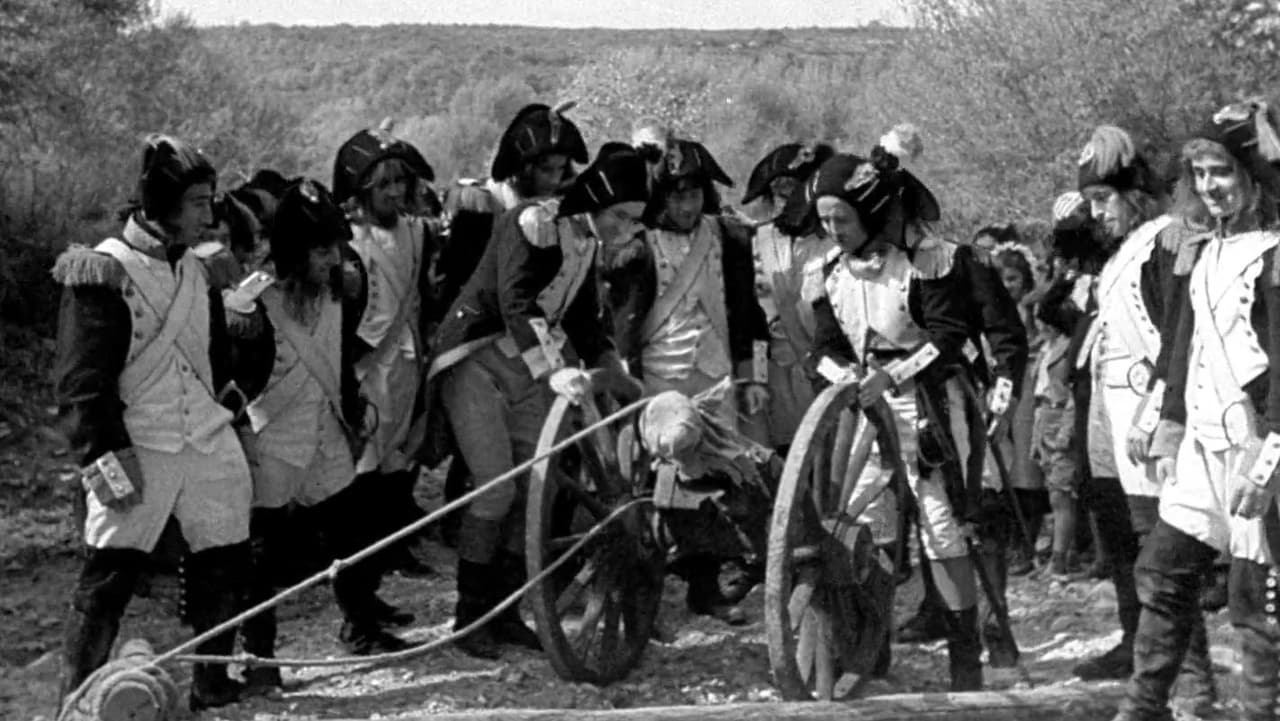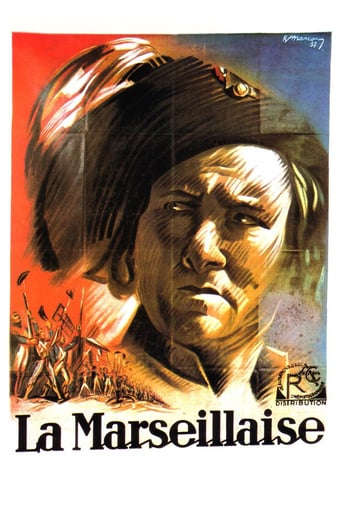

Given the monumental importance of the French Revolution in history, it is surprising that so few films have been made about it or have even used it as a setting. "The Assassination of the Jean Paul Marat" is probably the most interesting and offbeat film, but it takes place 20 years after the revolution and only debates and argues about it. "Scarlet Pimpernel," "Reign of Terror," and "Tale of Two Cities" just use the revolution as backdrops to tell fun adventure stories. "Danton" is boring, anti-revolutionary and childish, everyone is presented in black and white terms. Griffith's "Orphans of the Storm" has lots of delights and some great action sequences, but is too didactic and anti-revolutionary. "Marie Antonette" (2006) and "Affair of the Necklace" are beautiful and great works, but show little interest in the revolution itself.Although it deals with only some events leading to the overthrow of the monarchy, "La Marseillaise" is possibly the best film. It shows the complexity of the events and deals with them in an intelligent and reasonable manner. It shows how "the Brunswick Manifesto" led to the arrest of the King and Queen. While Marie and Louis, are not shown in a particularly good light, neither are they caricatured.The movie is episodic and slow, but there are a number of dazzling shots and scenes. The attack on the King's palace at the end is the dramatic highlight. There is a fabulous scene in the middle of the film where the aristocrats are singing a song about how they are going to "hang the traitors" and shortly the revolutionaries answer by singing about how they are going to "hang the aristocrats." It shows the most humanistic, balanced and honest presentation of the situation of any film on the subject that I have seen.
... View MoreThis film was an opportunity to view the French revolution from the view of the common people. Most viewers have only seen, perhaps, A TALE OF TWO CITIES or THE SCARLET PIMPERNEL, so this film does offer fresh insights. However, to me, some of the dialog and one-sidedness of the film seemed as one-dimensional as the other two movies I just mentioned.The film deals with events from 1789 to 1792 and so it really doesn't delve into the bloodier years of the Reign of Terror. It is understandable that these abuses aren't covered in depth, but to omit the be-headings completely seems rather dishonest. I'd really like to see a film that gives a balanced view of this period, but have yet to see it--and that's a shame, as it's a fascinating and tumultuous period.FYI--From my point of view as a history teacher, it does seem amazing that within only two years of the completion of this very rousing and patriotic film the French capitulated to the Nazis.
... View MoreJean Renoir's classic tribute to the glory of the French Revolution, the film captures the personal flavor of the struggle and the philosophical background to the revolutionary upheaval. In a rapid series of vignettes we are introduced to the elegance and nobility of the court of Louis XVI and Marie-Antoinette... the contrasting plight of French peasants governed by laws they cannot understand...the storming of the Bastille in 1789 by an undisciplined mob...the plotting of France's exiled nobility to return to power...the Republican march on Paris...and the capture of the Tuilleries in 1793, ending the revolution. The film follows the adventures of two young patriots who join the Peoples' army in Marseilles. As their battalion begins its long journey north to Paris to join with the Federate army, they adopt as their anthem a song from the Army of the Rhine. This song was soon to be known all over France as "La Marseillaise" and would lead the newly unified nation to victory.
... View MoreThis film, despite being directed by Renoir, is largely forgotten today. This is a pity, as there are few films actually about the French Revolution (though it is used as a backdrop for a variety of plot lines), and none that really deal with the birth of the Republic.It was made at the tail end of the 'Popular Front' government, a coalition of parties (including the communists) formed to protect the Third Republic from right-wing domestic subversion and the baleful influence of the Nazis.It chose to use the early years of the revolution as a metaphor for this political situation - France was still a (constitutional) monarchy, and the King possessed the power of a constitutional veto. The Queen and her circle were said to be plotting a counter revolution.Within this context, each city and region of France is requested to send a Battalion to Paris, to defend the government against its domestic enemies. We follow the adventures of some of the ordinary men in the battalion from Marseilles (who sing a new song called the "Marseilles" as they march. We see their experiences in Paris (including a love interest), and their simple and honest defence of what they believe in. Finally, they participate in the coup that leads to the establishment of the Republic and the arrest of the King.The film is episodic, and some of the scenes are a little melodramatic. But the characterisation is excellent. The King and his court are not one-dimensional villains. The scene of his departure is quite moving.In short, a film well worth rescuing from obscurity.
... View More